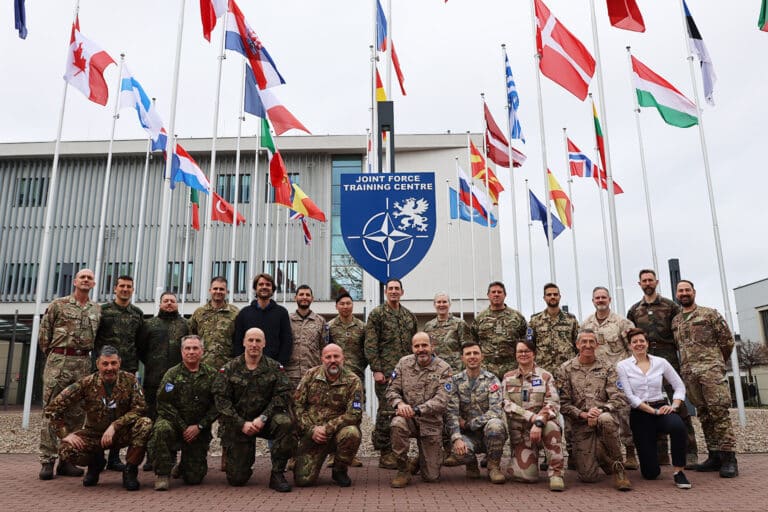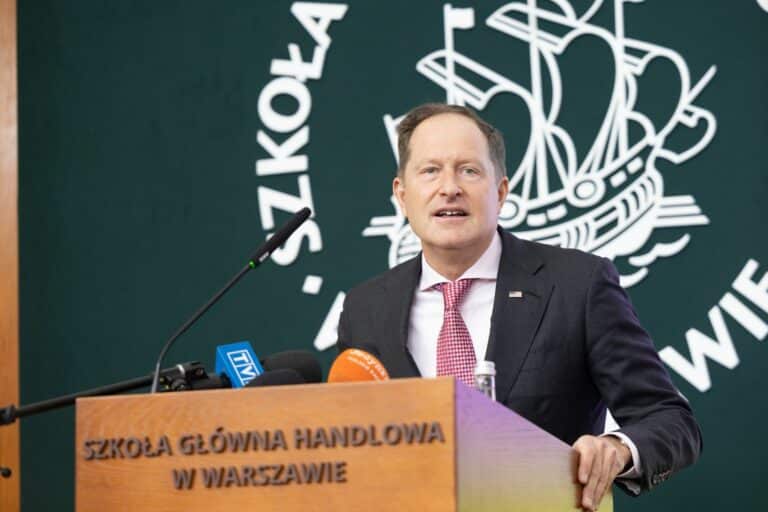Polish firms look east, near and far
Key takeaways from the “Destination: East. Current trends and attractive foreign expansion destinations in the face of geopolitical turbulence” report.
The Czech Republic, Romania and Ukraine in Central and Eastern Europe, and Japan, Kazakhstan and Malaysia in Asia are the most attractive countries for Poland’s foreign investors, according to the report “Destination: East. Current trends and attractive foreign expansion destinations in the face of geopolitical turbulence,” by PFR TFI, managing the Polish International Development Fund, and PwC Poland, in cooperation with the Polish Credit Export Agency (KUKE).
In 2022, the value of outbound foreign direct investments (FDIs) by Polish companies reached a record of over PLN 130 billion (about EUR 30 billion), PLN 20.8 billion more than a year earlier. Most Polish FDIs, as much as 87%, have been in Europe.
The report notes that CEE countries have seen dynamic growth over the past three decades and also shown stability and resilience to the geopolitical and macroeconomic turbulence of the last months. In 2022, they recorded almost 8% year-on-year growth in the value of inbound FDI. At the same time, the investment potential of most Asian countries remains very high.
In the first group – which includes mainly the CEE countries that are geographically and culturally closer – top-ranked are the Czech Republic, Romania and Ukraine, where potentially huge opportunities may open up for Polish companies as part of the country’s reconstruction process. Among the second-circle countries, Japan, Kazakhstan and Malaysia made the podium.
“I am convinced that in the current dynamic economic environment, we can find space to develop Polish direct investments abroad. In particular, such space is now open for our companies in the CEE and Asia,” says Piotr Kuba, Chief Investment Officer, Board Member, PFR TFI.
“The Polish International Development Fund, by offering co-financing of international investments, increases the financial capabilities of Polish companies so that they can more effectively exploit their potential and build a solid competitive advantage on international markets,” he adds.
The report identifies key trends shaping the international FDI landscape. The challenging macroeconomic and geopolitical environment means that their influence on global economic processes and corporate business decisions is growing.
“2023 brought a marked slowdown in global GDP dynamics, followed by a reduction in foreign direct investment flows. The new reality means changes in the balance of power in the global economy and growing protectionism,” says Paweł Oleszczuk, PhD, Vice Director, Public Sector & Economics, PwC Poland. “In addition to geopolitical turmoil, the FDI market and business sentiment are currently mainly driven by nearshoring, energy transition and digital transformation. It is worth taking a closer look at these trends to understand the challenges as well as the business opportunities related to them,” he adds.
The report also presents the results of a survey conducted on a sample of 240 Polish large and medium-sized enterprises, which shows a change in the perception of key risk factors compared to the previous edition of the survey, with 90% of companies identifying geopolitical risk and a sufficiently large market as decisive elements in the analysis of a potential investment location. Companies are also more cautious when it comes to planning their foreign projects, although it is clear that greater interest in expansion is shown by those companies that already have a track record in foreign investment. Plans for further expansion in the next three years are declared by 41% of companies that have already invested abroad and just over 26% of all entrepreneurs.
“There is a chance for our business to be finally more active abroad,” says Janusz Władyczak, CEO, KUKE. “So far, although we have been successful in attracting investments from other countries, our regional neighbours have been better at outbound capital expansion. We want to share knowledge about the benefits and opportunities of international development and show Polish entrepreneurs specific markets worth considering when looking for investment opportunities. At KUKE, we see a growing interest among Polish businesses in going international. To reinforce this trend, we offer attractive instruments to secure the investments themselves as well as their financing, which significantly increases the security of foreign investment,” he adds.
As many as 55% of the companies surveyed indicated geographical diversification and risk reduction as the main benefits of foreign investment. As the second most important benefit, entrepreneurs point to the opportunity to secure supply chains, as stated by more than 47% of respondents.







